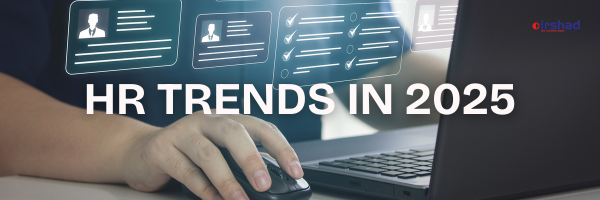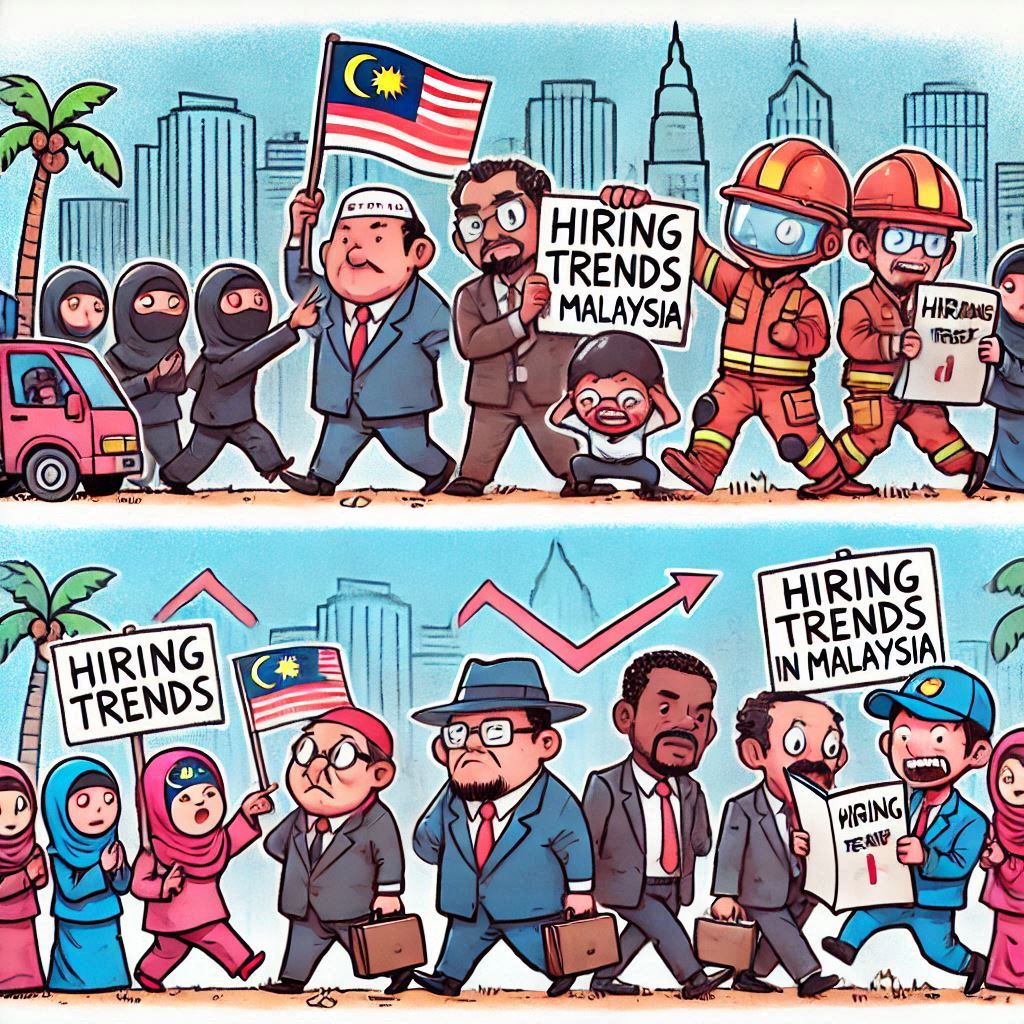
In 2025, Malaysia’s HR landscape is set to evolve, influenced by technological advancements, economic policies, and shifting workforce expectations. Some key trends that you may want to have a peek into include:
-
Emerging Trends in Employee Benefits in 2025
Compensation that matches workload isn’t just about fairness, the bottom line is – it is a strategic approach that drives employee engagement, retention, and overall organisational success. Some of the emerging benefits that continues the rise are:
- mental health benefits
- flexible work models, including remote and hybrid setups
- pet insurance
- expanded family care benefits
- sustainability & green benefits – eg: public transport allowance, remote work to reduce commuting emission
continues to rise. Employees increasingly seek work-life balance, prompting employers to offer adaptable work schedules to attract and retain talent. By valuing employees appropriately, companies create a workforce that is motivated, satisfied, and aligned with business goals (Jobthing, 2024). Read more on Trends of Compensation in 2025 HERE.
Article Link: https://www.ajobthing.com/resources/blog/employee-benefits-trends-in-2025-for-malaysian-hr?
Also according to 2024 Employer Brand Research from Randstad, 2024, approximately 33% employers plan to increase wages by 3% to 5%, while 28% anticipate raises between 5% and 10%. Additionally, bonuses equivalent to 1 to 2 months’ salary are expected, reflecting a strategic effort to remain competitive in the job market. As always, salary and benefits continue to be the top priorities for Malaysians when considering an ideal employer.
Article Link: https://www.randstad.com.my/hr-trends/workforce-trends/malaysia-job-market-outlook-salary-trends-2025/?utm_source


-
Integration of Artificial Intelligence (AI) in HR Processes
AI is set to significantly influence HR trends in Malaysia by 2025, driving demand for professionals skilled in AI, data analytics, and digital technologies. From Randstad’s 2024 Employer Brand Research, 45% of employees already experiencing AI’s impact at work, its integration into HR processes, such as recruitment and workforce management, is expected to grow. However, 34% of Malaysians have yet to use AI at work, highlighting a critical gap in readiness for future roles.
Article Link: https://www.randstad.com.my/hr-trends/employer-brand/randstad-malaysia-2024-employer-brand-research/
As businesses adopt advanced technologies to boost efficiency and accuracy, upskilling will be essential to bridge the talent gap, especially as 70% of new job openings will require digital skills, yet only 30% of the current workforce is adequately prepared. This significant portion of the workforce remains unacquainted with AI tools, highlighting the need for training and awareness programs to facilitate seamless adoption. Read the article HERE.
Article Link: https://www.randstad.com.my/hr-trends/workforce-trends/malaysia-job-market-outlook-salary-trends-2025/?utm_source
-
Hiring Trends in Malaysia for 2025
Malaysia’s job market is poised for significant transformation in 2025, driven by geopolitical shifts, government initiatives, and the adoption of advanced technologies. The country has become a preferred destination for foreign investment due to its skilled workforce and favourable business environment, leading to a steady employment growth and low unemployment rates.
Hiring trends are shifting towards skills-focused recruitment, flexible contract hiring, and an emphasis on environmental, social and governance (ESG) and Diversity, Equity, and Inclusion (DEI) practices. Government programs, like the Madani Budget 2025 and the National Semiconductor Strategy, aim to boost high-value job creation and digital transformation, with major investments from global tech giants. AI is revolutionising recruitment processes, while tailored benefits and career development opportunities are becoming essential for talent attraction and retention. Salaries are also expected to rise, with job movers seeing increases of up to 30% or more for specialised roles (Robert Walters, 2024). For more information, read HERE.
Article Link: https://www.robertwalters.com.my/insights/hiring-advice/blog/country-overview-hiring-in-malaysia-trends-and-guide.html


-
Government Initiatives Impacting HR Practices
The Malaysian government’s policies, such as the new public service compensation scheme effective December 1, 2024, which includes salary hikes and restructuring for civil servants, are set to influence HR practices across sectors. These changes aim to improve employee satisfaction and address rising living costs. Read more HERE
The 2025 Budget brings significant updates for employers and HR leaders in Malaysia, focusing on wage increases, social security, tax incentives, and training. Key changes include raising the minimum wage to RM1,700 from February 2025, mandatory EPF contributions for foreign workers, and SOCSO incentives for hiring PWDs and ex-convicts. Tax reliefs have been expanded to support caregivers and flexible working arrangements, with 50% deductions for related costs. A RM3 billion fund will provide 3 million training opportunities, while progressive wage policies and enhanced tax reliefs for vulnerable groups aim to promote inclusivity and workforce development. HR leaders should align policies with these updates to enhance employee welfare, ensure compliance, and leverage government-backed incentives. Read more on Budget 2025: Key Updates for Employers and HR Leaders HERE
Article Link: https://www.centralhr.my/budget-2025-key-updates-for-employers-and-hr-leaders/
As HR professionals in Malaysia, staying abreast of these trends will enable you to navigate the evolving landscape effectively, ensuring your organizations remain resilient and competitive.
